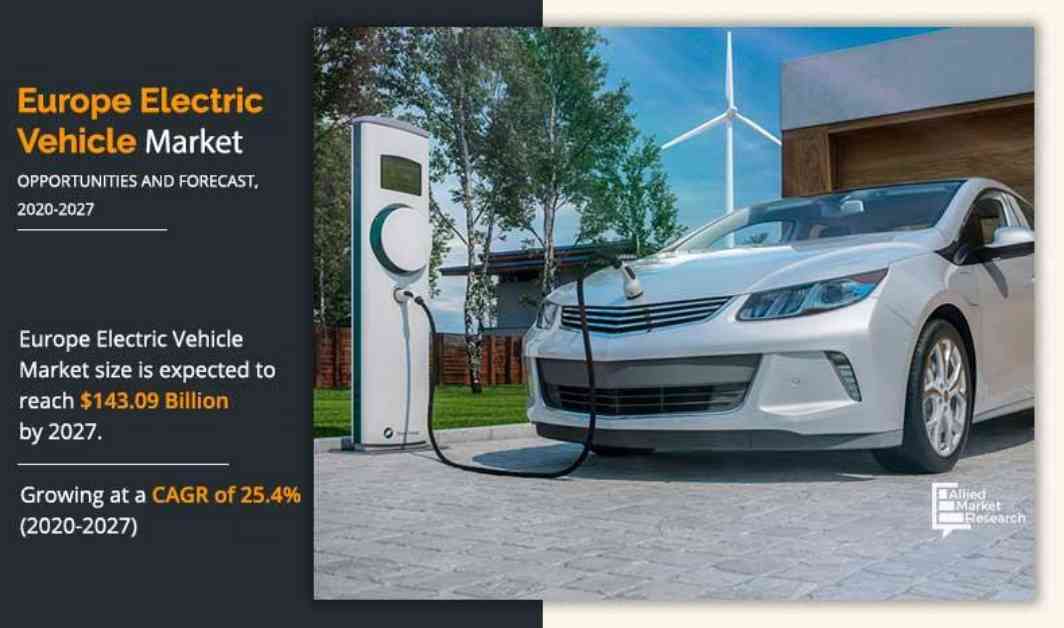The electric vehicle market in Europe is on the rise, with projections indicating that it will reach a value of $143.09 billion by 2027. This growth is driven by countries like Germany, France, Spain, Italy, and the UK, which are experiencing significant increases in the adoption of electric vehicles. Government subsidies and incentives have played a crucial role in boosting the market, with countries offering tax cuts, exemptions, and subsidies to encourage the purchase of electric vehicles.
For example, Germany has implemented a tax cut of 3% on electric vehicles purchased between July 2020 and December 2020, along with a 10-year tax exemption and a subsidy of $11,043.9 for EVs costing less than $49,084. France provides subsidies of up to $8,589.7 for families buying EVs costing less than $55,219.5. Spain has lowered taxes by 75% for EVs in major cities and offers subsidies ranging from $4,908.4 to $6,135.5. In Italy, EVs are exempt from taxes for 5 years post-registration and receive a 75% tax cut thereafter.
The UK also offers incentives such as VAT and road tax exemptions for carbon-neutral vehicles, as well as grants worth $3,681.3 for vehicles costing less than $61,355. These incentives have led to a higher adoption rate of electric vehicles across Europe, creating lucrative opportunities for the market in the coming years.
However, the COVID-19 pandemic has impacted the electric vehicle market in Europe. The supply chain has been disrupted, leading to a halt in production at electric vehicle manufacturing units across the region. The unavailability of skilled labor due to lockdown restrictions has further affected production. Despite these challenges, the market is expected to recover and continue its growth trajectory.
In 2019, battery electric vehicles (BEVs) were the top revenue generators by type, while passenger cars led in terms of vehicle type. Germany was the leading revenue contributor among European countries in 2019. The future of the electric vehicle market in Europe looks promising, with increasing government support and growing consumer interest in sustainable transportation options.
Overall, the electric vehicle market in Europe is poised for significant growth, driven by government incentives, technological advancements, and shifting consumer preferences towards environmentally friendly transportation solutions. With a strong focus on sustainability and reducing carbon emissions, the future of electric vehicles in Europe looks bright.
